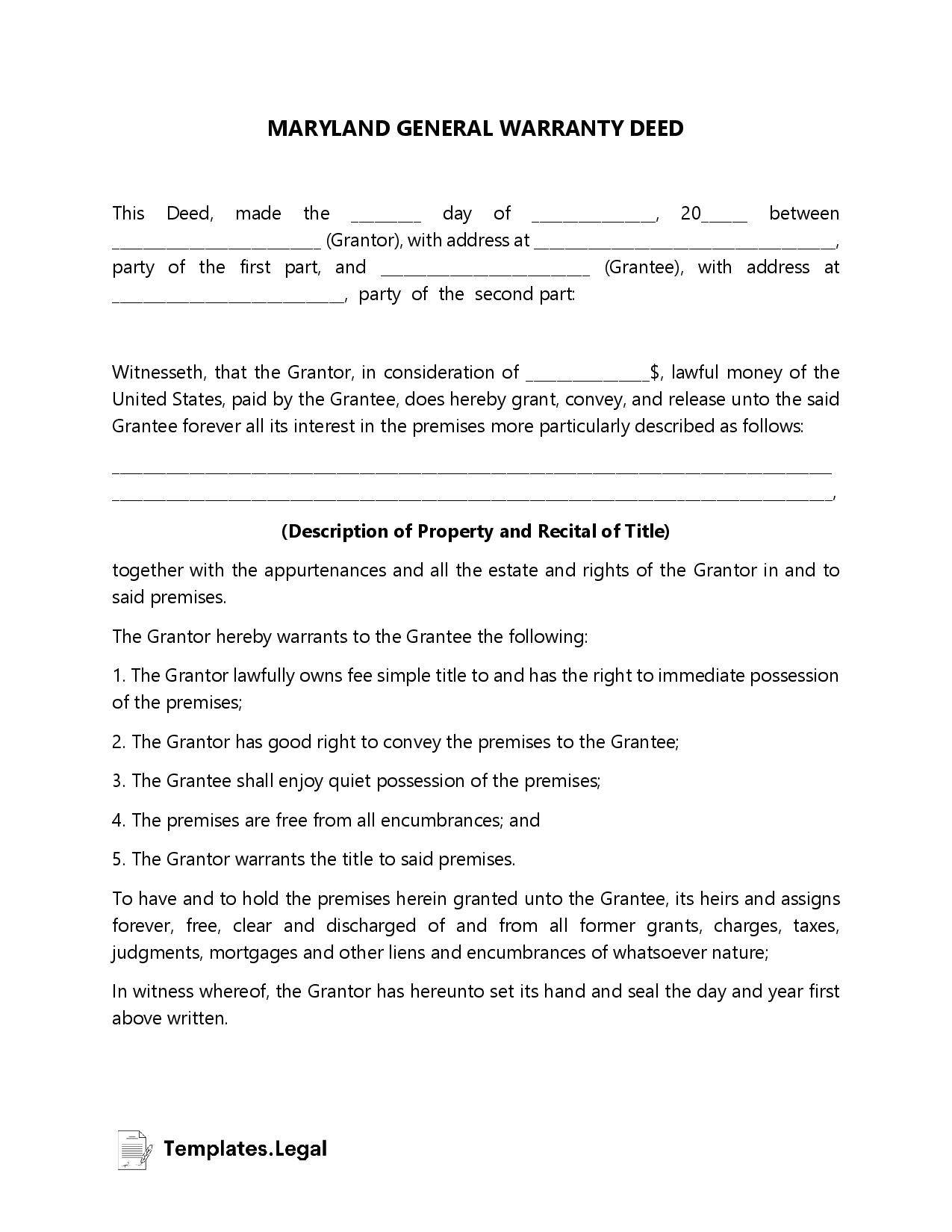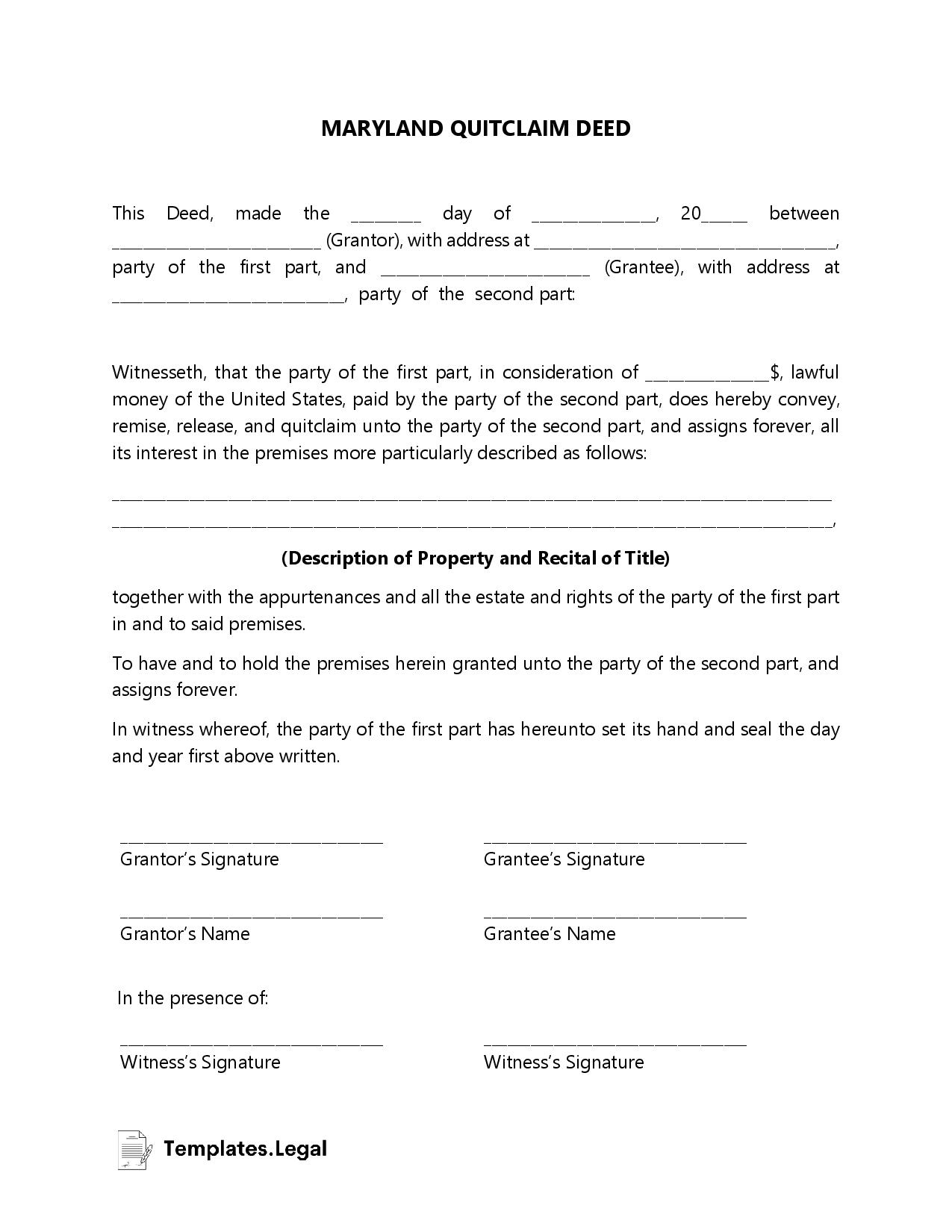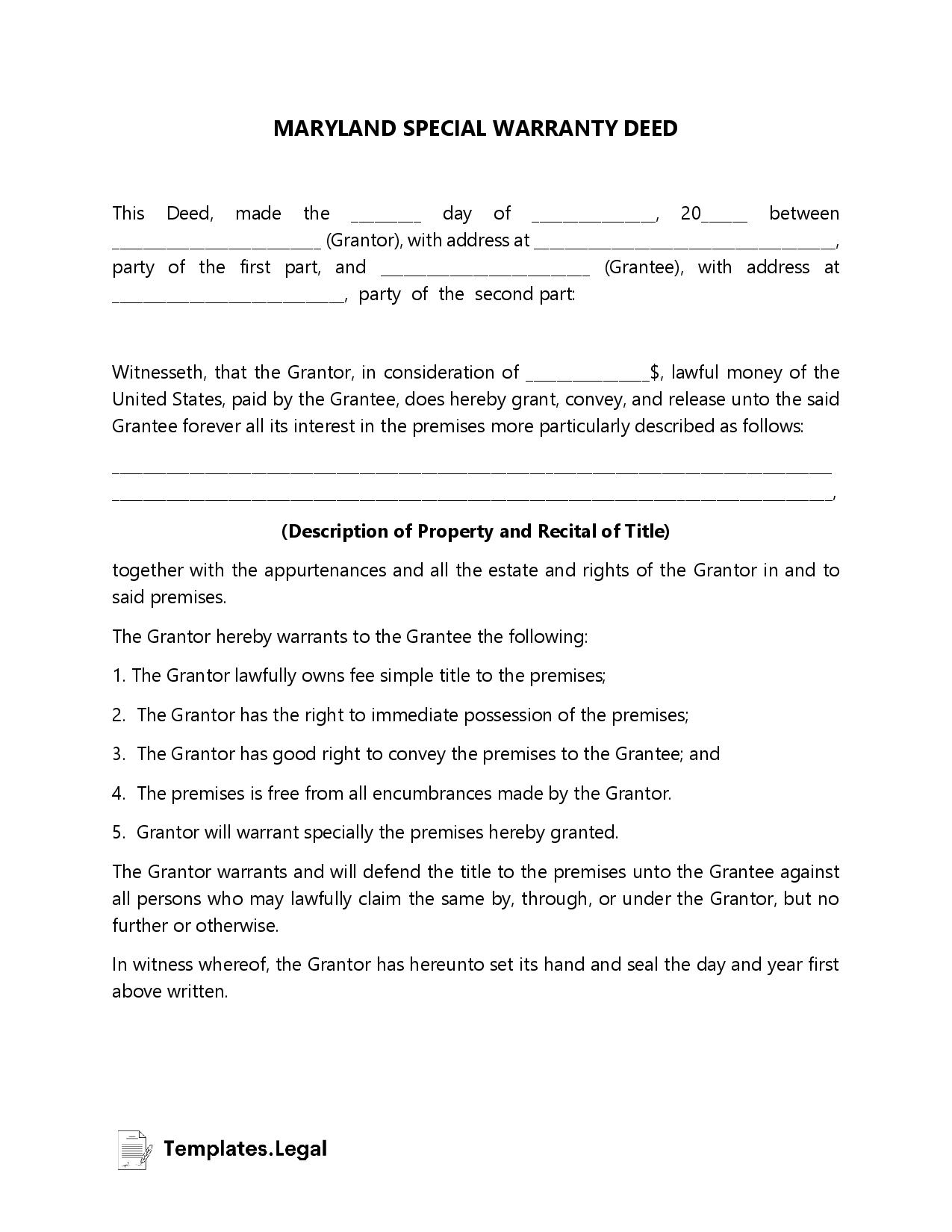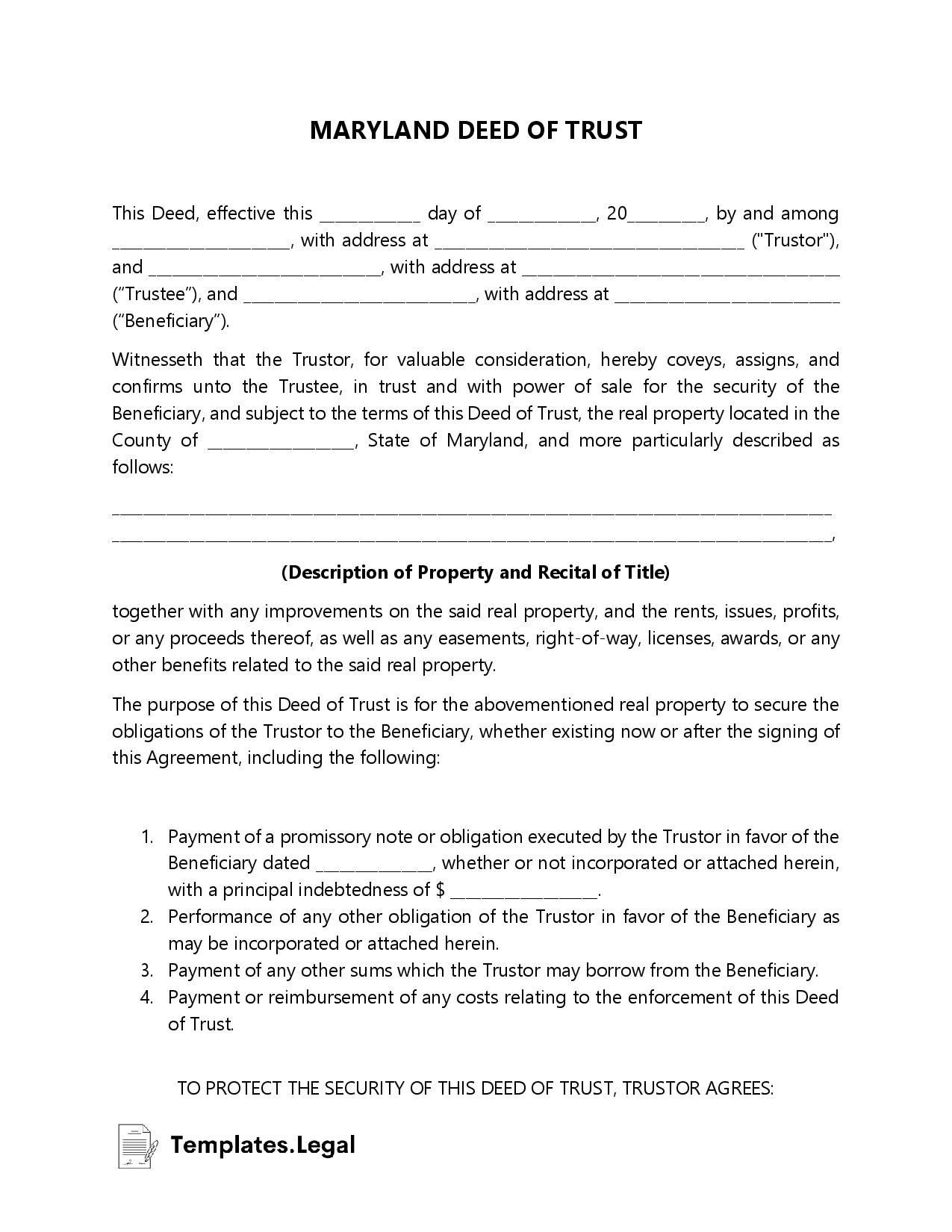Maryland Deed Forms & Templates
Owning a home in the great state of Maryland is an excellent decision in terms of long-term growth, appreciation, and access to ongoing opportunities. Like you would want to have the receipt on an expensive item, having the deed is even more critical. The deed to your property clearly states who owns the property, which is essential documentation.
Types of Deeds in Maryland
There are quite a few deeds in the state of Maryland. They are listed below:
Maryland General Warranty Deed
As defined by the Maryland property act (2-105), a general warranty deed confirms the property has no liens or mortgages (under warranty).
Once the deed is endorsed with the certificate of the collector of the county’s taxes where the property is assessed, a recording fee, transfer tax (13-202), and taxes must be paid. Contact the circuit court ahead of time to get the fees you will be required to pay.
Maryland Quitclaim Deed
A deed where no promises of good title are made on the property; this is an expeditious way to transfer but leaves the recipient potentially open to title problems. (4-101)
Maryland’s quitclaim process depends on the county, and the deed needs to be reviewed prior to being signed before a notary public.
Maryland Special Warranty Deed
As the name implies, this is a deed with conditions: the special warranty deed says that no title problems are present with the property, but there may be other problems with the property that the grantee must accept.
Often special warranty deeds are used to transfer property as part of a will. The deed can’t take effect in Maryland until the estate of inheritance or freehold is executed and recorded first (3-101).
Maryland Deed of Trust
A Maryland deed of trust is used instead of a mortgage. The deed is transacted between the lender, borrower, and trustee. In Maryland, the deed is a fee simple conveyance where the borrower will be transferred the object of the deed provided all the terms are met within the deed.
Deeds of trust must have a signed statement assuring the document was supervised by a Maryland attorney (3-104(f)(1)).
How To Transfer a Deed in Maryland
Transferring a deed means moving the ownership of a property from one set of owners to another. This can become quite complicated quickly; if one of the current owners is deceased, the estate has to be managed before deed transfers occur.
An estate isn’t impossible to manage, of course. If there is a will in place, then it’s a matter of simply following the appropriate legal channels to properly dispose of the property and get it into the hands of the heir(s).
If there are any back taxes or liens, the deed cannot go to the other parties until those obstacles are cleared.
A new deed gets created once the transfer is finished; the new owner is entitled to documents proving that they truly do own the property in question.
Getting a Copy of a Deed in Maryland
To get a copy of your deed, you have to go back to the county where the deed was recorded. If you live in Annapolis, for example, this is Anne Arundell County’s Land Records department. To get a certified copy of the deed, you will have to pay a fee to the county.
Deeds are considered open records, so it’s effortless to replace one that you have lost. Once you get the new copy, store it in a secure location that’s protected from the elements. Some people go as far as getting a safety deposit box at a bank to keep their deeds and other important documents.




